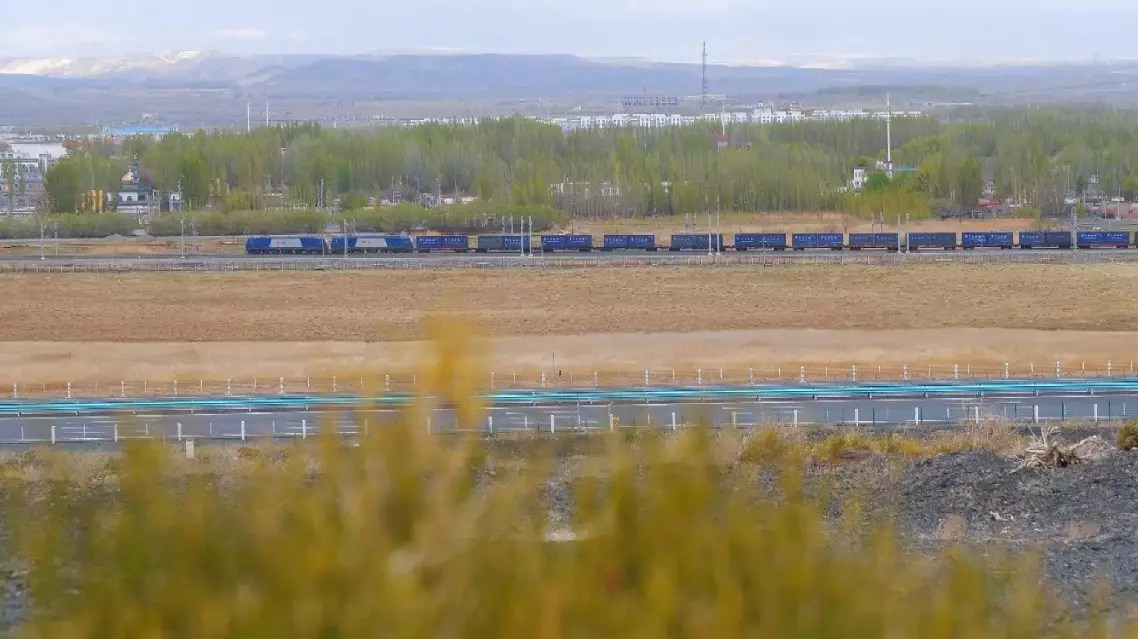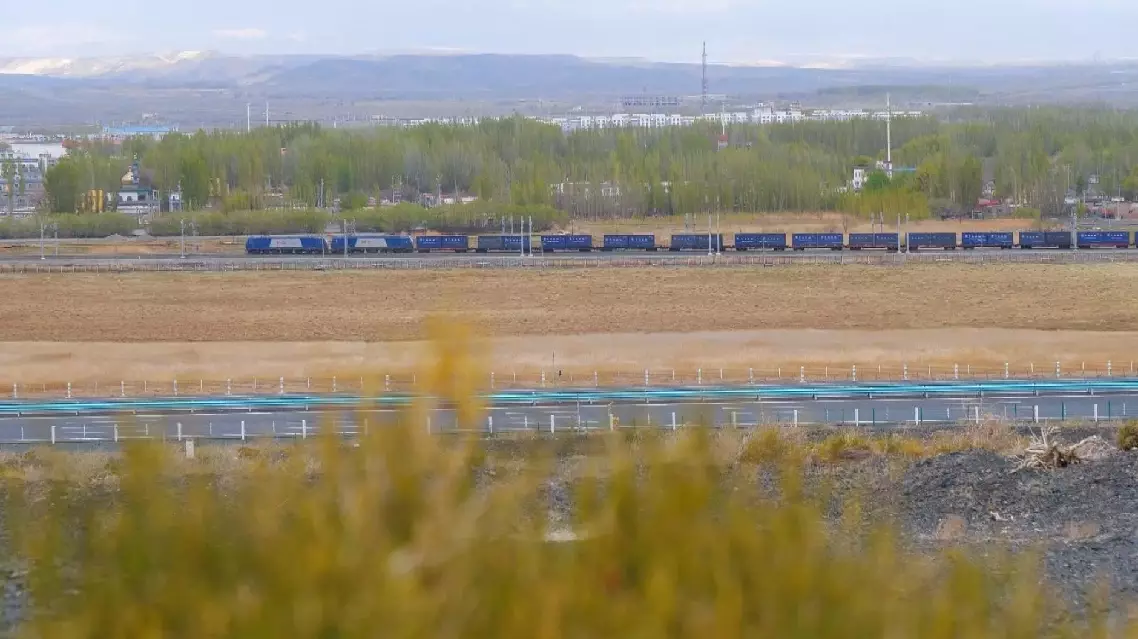Northwest China's Xinjiang Uygur Autonomous Region had dispatched a total of 101 million tons of goods this year as of Thursday, marking a 2 percent year-on-year growth, according to the China Railway Urumqi Bureau.
The 100 million-ton milestone was reached three days earlier than last year, said the authority.
These goods shipped from Xinjiang included more than 39.4 million tons of coal, an increase of 6.8 percent year on year, which have added new momentum to the efforts to ensure national energy security and served the high-quality development of the regional economy, said the bureau.

Xinjiang railway's cargo dispatch volume exceeds 100 million tons this year

Xinjiang railway's cargo dispatch volume exceeds 100 million tons this year









